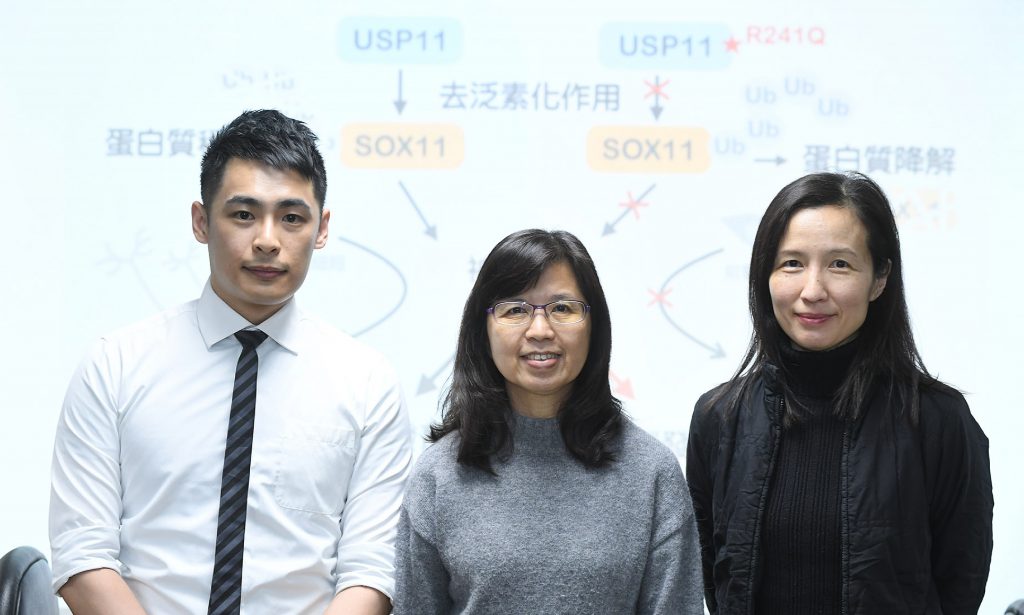
Cerebral cortex is responsible for sensory, motor, emotional processing and higher cognitive functions. The development of cerebral cortex is a complex process involving several steps, such as neurogenesis, neuron migration, cortical organization and circuit formation. Dysregulation of any step could lead to neurologic disorders such as intellectual disability, epilepsy, and autism. These patients often require long-term medical care and special education, causing considerable burdens on family, society and economy. Previous studies on cerebral development has mainly focused on the transcriptional regulation of neurogenesis factors, while the role of protein modification remains relatively unappreciated. The research teams of Dr. Ruey-Hwa Chen at Institute of Biological Chemistry and Dr. Shen-Ju Chou at Institute of Cellular and Organismic Biology collaborated to publish a paper in the journal Science Advances, where they reported a new concept for the role of protein stabilization in cerebral development.
The research teams identify a deubiquitinating enzyme called USP11, which inhibits the ubiquitination of SOX11 during the process of cerebral development. This action of USP11 stabilizes SOX11 to facilitate the formation of neurons and the migration of the newly synthesized neurons to correct positions, thereby contributing to the construction of a functional neuron circuit. In USP11-deficient mice, although SOX11 mRNA is readily induced through a transcriptional mechanism, its protein fails to be stabilized, leading to the malformation of cortical development. Consequently, the USP11-deficient mice exhibit multiple behavior abnormalities in their adulthood, including learning, memory, social and emotional deficits.
Importantly, USP11 gene variant was previously discovered from a patient of inherited neurologic disorder with intellectual disability. Using cell and mouse models, the research teams found that this variant can neither stabilize SOX11 nor support the normal development of cerebrum, indicating the importance of SOX11 stabilization by USP11 in human cerebral development. This study thus provides new insights into the diagnosis and treatment of neurologic disorders related to malformation of cortical development.
This study integrates the expertise of Dr. Ruey-Hwa Chen’s team on protein modification and Dr. Shen-Ju Chou’s team on cerebral development. The first author is Shang-Yin Chiang (Ph.D. student at Institute of Biological Chemistry). Other authors include the team members of Dr. Chen and Dr. Chou, Dr. Shu-Yu Lin (Research Specialist at Institute of Biological Chemistry), Dr. Hung-Chih Kuo (Research Fellow at Institute of Cellular and Organismic Biology), and Dr. Yi-Shuian Huang (Research Fellow at Institute of Biomedical Science). This was supported by Academia Sinica and Ministry of Science and Technology.
Full article: https://advances.sciencemag.org/content/7/7/eabc6093
